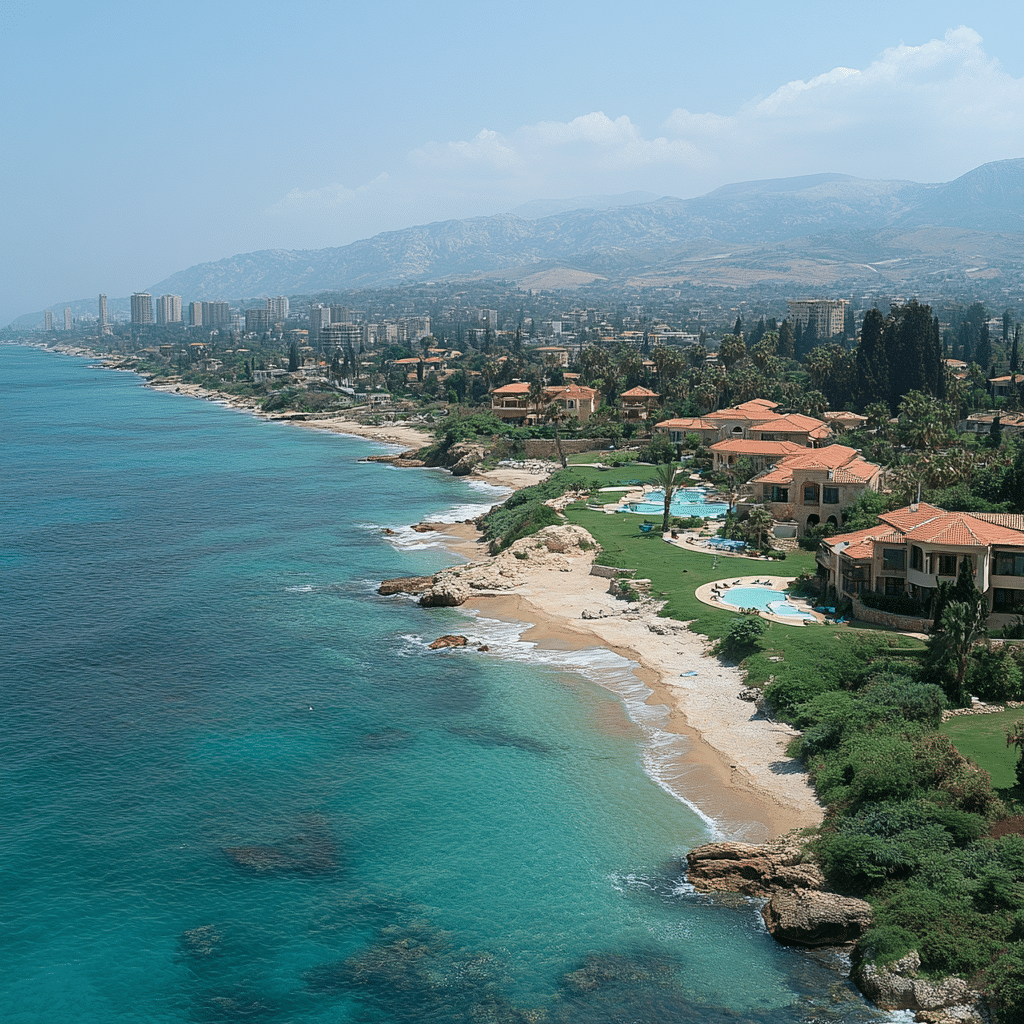## Complex History and Travel Restrictions: Israel Lebanon
The relationship between Israel and Lebanon is woven from a rich tapestry of history, peppered with conflict and rare moments of calm. Geographical closeness has always bound them, but it’s a bond marked by strife, war, and political jockeying.
Back in 1948, during the Arab-Israeli War, Lebanon joined forces with its Arab neighbors against the nascent Israeli state. This was just the start of a rocky relationship. The 1982 Lebanon War remains a critical juncture. The Israeli Defense Forces (IDF) invaded Lebanon to counter Palestinian militants’ attacks, leading to severe political and civil disruptions within Lebanon. Israel’s clashes with Hezbollah, a dominant Shiite militia backed by Iran, continue to inflame tensions. Hezbollah remains a thorny issue, given its persistent anti-Israel agenda.
Modern Political Dynamics: From Hostilities to Diplomatic Labyrinths
Unofficial Hostilities and Proxy Wars
Since the 2006 Lebanon War, a shaky truce has hung over the borders, but it’s been anything but peaceful. Skirmishes and flare-ups involving Hezbollah frequently break the calm, embodying a state of unofficial conflict. When the Syrian Civil War erupted, it added another layer to the tension. Hezbollah’s involvement in Syria, often against factions interested in Israel, complicated Israeli-Lebanese relations even more. These proxy wars continue to fuel mistrust and hostility.
International Sanctions and Diplomacy
Global diplomatic efforts have often fallen short of reconciling the adversaries. Though United Nations resolutions like UN Security Council Resolution 1701 were aimed at halting hostilities, compliance has been sketchy at best. Various peace proposals, primarily driven by the United States and European diplomats, have buckled under mistrust and security concerns.

| Category | Israel-Lebanon Relations Summary |
|---|---|
| Diplomatic Status | No formal diplomatic relations; Israeli law enforcement treats Lebanon as an “enemy state.” |
| Travel Restrictions | Strict travel restrictions for both countries: |
| – Israeli citizens or passport holders bearing Israeli stamps are prohibited from entering Lebanon. | |
| – Lebanese law makes travel to or from Israel illegal. | |
| 1982 Lebanon War | – Triggered by Israeli invasion in response to attacks from Palestinian militants in Lebanon. |
| – Marked the beginning of the 1982 Lebanon War. | |
| Conflict Parties | – Involved multiple parties including the Israeli government and Hezbollah. |
| Claimed Victories | – Both Hezbollah and the Israeli government claimed victory. |
| Winograd Commission | – Concluded the war was a missed opportunity for Israel. |
| Border Issues | – Travelers with Israeli, Egyptian, or Jordanian border stamps from offices near Israel may be refused entry into Lebanon, as such stamps could indicate prior visits to Israel. |
| Current Situation | – Continued tension and sporadic conflicts along the Israeli-Lebanese border. |
| Security Concerns | – Both countries have heightened security measures and intelligence monitoring due to the ongoing hostilities. |
Travel Restrictions: Navigating Through Bureaucratic Barriers
Legal Impediments for Travelers
Travel between Israel and Lebanon is heavily restricted, with severe legal and bureaucratic hurdles. Lebanese citizens face harsh penalties for entering Israel, and likewise, Israeli citizens encounter significant barriers trying to enter Lebanon. For instance, if tourists have Israeli stamps in their passports, they can say goodbye to entry into Lebanon. Some travelers obtain second passports to sidestep these restrictions, but it’s not without risks.
Impact on Expatriates and Dual Nationals
The expatriates and dual citizens have their own set of headaches. Lebanese communities abroad, such as those in the U.S. and Canada, often avoid travel to Israel, fearing legal repercussions upon returning to Lebanon. Equally, Jewish Lebanese residents abroad must tread carefully with their travel plans to dodge scrutiny from both governments.
Economic and Cultural Ramifications: Beyond Borders
Trade and Economic Challenges
Trade between Israel and Lebanon is, in essence, non-existent due to severe embargoes. Once bustling trade routes, essential for commerce and cultural interchange, have long since dried up. Lebanese manufacturers, like the Beirut-based Outbox Factory, face insurmountable hurdles in accessing Middle Eastern markets that freely trade with Israel.
Cultural Entrenchments and Media Influence
Media narratives on both sides heavily sway public perception. Israeli and Lebanese media tend to push nationalist and adversarial content, stoking the flames of public sentiment. Prominent cultural figures, like Lebanese singer Marcel Khalife, often voice resistance narratives, intensifying the divide even further.

The Human Element: Personal Stories of Conflict and Hope
Voices from the Border: Everyday Realities
The border towns bear the brunt of the ongoing tensions. Residents in Metula, Israel, and Kfar Kila, Lebanon, live in a state of constant anxiety. Everyday life revolves around the uneasy ceasefire, with schools and businesses operating under strict safety measures and protocols.
Peace Advocates and Humanitarian Efforts
Despite the overarching conflict, there are those striving for peace. Organizations such as the Parents Circle Families Forum, which includes bereaved families from both nations, work tirelessly for dialogue and reconciliation. These humanitarian efforts, though often politically marginalized, offer a glimpse of hope in a landscape riddled with hostility.
Looking Forward: Potential Pathways to Reconciliation and Peace
The relationship between Israel and Lebanon is a dense fabric of historical, political, and cultural layers. While tensions currently overshadow prospects of progress, opportunities for reconciliation do exist. Neutral international platforms, robust diplomatic initiatives, and grassroots dialogues could play pivotal roles in repairing this fraught relationship.
Breaking down barriers, fostering understanding, and encouraging person-to-person connections might slowly change the narrative, paving the way for a stable and peaceful future. In the end, the intricate history of Israel and Lebanon need not dictate their future indefinitely. Diplomatic resilience and humanitarian efforts hold the promise of transformation.
Israel Lebanon: Complex History and Travel Restrictions
Historical Puzzle Pieces
The tale of Israel and Lebanon’s relationship is somewhat akin to a mosaic, rich in layers and hidden tales. Did you know Lebanon was once known as the “Switzerland of the Middle East”? This nickname came from its bustling tourism and financial sectors in the 1960s. Israel, on the other hand, saw a dramatic rise in immigration post-WWII, shaping its demographic landscape significantly. Intriguingly, at times, icons like friend inc have impacted society by fostering intercultural dialogues and understanding, albeit through challenging eras marked by conflict.
Border Tensions and Tiny Surprises
Amid political strains, the Israel-Lebanon border has some rather curious features. There exists a tiny strip of no man’s land where both countries’ flags face off. Officially, you’re not allowed to cross, but there have been anecdotes of daring tourists inching close, capturing once-in-a-lifetime photos. For those eyeing historical depth, the fascinating Maronite Christian community in Lebanon has ties to early Jewish settlers. Wanting to visit these areas can prompt logistical challenges reminiscent of needing moving assistance when relocating households — each step requires caution and precision.
Odd Facts and Connections
Here’s a quirky bit: during California’s stormy periods like the infamous california flooding storms of recent years, some diplomatic communications were delayed, leading to a few humorous misunderstandings between officials from Israel and Lebanon. Culturally, both countries have vibrant arts scenes. Lebanon has a ground-breaking influence in the world of manga; ever heard of the popular yona of the dawn manga? Sure, the content is varied, but it mirrors the passionate spirit seen in some Israeli and Lebanese narratives.
Surprised Echoes in Society
Here’s another curveball: famed activist Janet Smollett, known in part through media lenses like janet smollett, has on occasion spoken on the delicate balance of peace initiatives in regions like Israel and Lebanon. Meanwhile, news media, sometimes covering unusual topics like bbc shemale, also touch upon cultural dynamics, showcasing how these nations are seen worldwide.
Each of these trivia points, whether reflecting geopolitical events, cultural intricacies, or just odd occurrences, weaves a narrative tapestry that’s as compelling as it is complex. And there you have it — some fascinating fragments from the multifaceted history and societal tapestry that define Israel and Lebanon.

What is the relationship between Israel and Lebanon?
Israel and Lebanon have a very strained relationship, with Israel considering Lebanon an “enemy state”. This tension often extends to acts of military aggression and hostile policies between the two nations.
Why did Israel go into Lebanon?
Israel invaded Lebanon in 1982 because Palestinian militants were using Lebanese territory as a base to launch attacks on northern Israel. This led to a full-scale military conflict known as the 1982 Lebanon War.
Who won the Israel-Lebanon War in 2006?
The 2006 Israel-Lebanon War ended without a clear victory, with both Hezbollah and the Israeli government claiming success. The Winograd Commission in Israel later criticized the war as a missed opportunity for Israel.
Can I go to Lebanon if I went to Israel?
Traveling to Lebanon after visiting Israel is not allowed. If your passport shows an Israeli visa or stamp, or even certain Egyptian or Jordanian stamps, you might be refused entry or detained in Lebanon.
Does Lebanon support Israel or Palestine?
Lebanon does not support Israel; it has historically aligned itself with Palestine. The country harbors significant support for Palestinian causes and resists normalization with Israel.
What happens if a Lebanese person goes to Israel?
A Lebanese person who goes to Israel can face severe legal consequences in Lebanon, including the possibility of arrest upon return, due to Lebanon’s stance on Israel as an enemy state.
Is Lebanon still at war with Israel?
Lebanon and Israel are not currently engaged in an active war, but there is no formal peace treaty, so they remain technically at odds.
What country was Lebanon before?
Lebanon has always been Lebanon, but it was once part of the Ottoman Empire before gaining independence in the mid-20th century.
What happened in 1982 between Israel and Lebanon?
In 1982, Israel launched a military invasion of Lebanon to eliminate Palestinian militant bases. This action led to a prolonged conflict and significant regional instability.
What is the conflict between Israel and Lebanon?
The conflict between Israel and Lebanon centers around historical territorial disputes, security concerns, and the presence of groups like Hezbollah, which oppose Israel and operate from Lebanon.
Is it safe to travel to Lebanon?
Travel safety to Lebanon can be variable, depending on the region and current political climate. It’s important to check current travel advisories and exercise caution.
Who controls Lebanon?
Lebanon is controlled by a complex political system with significant influence from various religious groups, and the militant group Hezbollah also holds substantial power.
Can a Lebanese marry an Israeli?
Legally speaking, it would be very difficult for a Lebanese person to marry an Israeli due to the stringent laws and political hostilities between the two nations.
Can Jews visit Lebanon?
Jews are generally advised against visiting Lebanon due to the country’s stance on Israel and the risk of legal complications or detention.
Can I go to Israel if I have been to Saudi Arabia?
You can visit Israel if you’ve been to Saudi Arabia. Israel has no restrictions on travelers based on previous visits to other countries.
Was Lebanon part of Israel in the Bible?
Lebanon was not part of Israel in the Bible, although both are located in the ancient area known as the Levant, with many historical and cultural connections.
What happened to the Jews of Lebanon?
Many Jews who lived in Lebanon left during the mid-20th century due to rising regional tensions, with remaining communities becoming very small or moving abroad.
What separates Israel from Lebanon?
The border between Israel and Lebanon is known as the Blue Line, established by the United Nations to confirm Israel’s withdrawal from Lebanon in 2000.
Why is there conflict between Israel and Arab?
The broader conflict between Israel and Arab nations stems from disputes over land, national identity, and religious significance, with multiple wars and ongoing tensions as part of the larger Arab-Israeli conflict.



